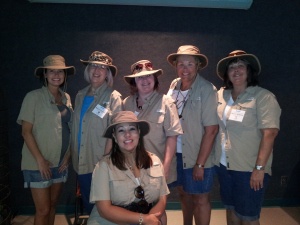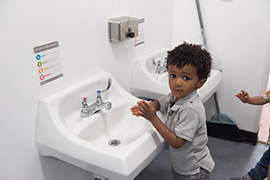
A popular song once asked – “What’s love got to do with it?” For those of us who are working to make sure that our youngest children have what they need, we need to ask a similar question: What’s adults got to do with it?
Recent groundbreaking research on brain development has shown us that children have a critical window in their brain development between birth and age five. Responsive and attentive interactions between young children and the adults around them during this period form strong neural connections and shape the architecture of the brain. This is why every single interaction with babies and preschoolers matters so much. Indeed, fostering strong development in those early years is vitally important to children’s success in life.
But the window doesn’t slam shut when children turn five.
The brain is still open to intervention and change throughout life, with some areas still maturing in the early 20s. That doesn’t mean we should wait until then. It just opens up a wider window and invites us to step in as soon as we can and go as long we can.
Research also says that the chain of adults who are part of children’s lives starting at birth can have a profound impact on what happens to children and how their lives are shaped. Instead of throwing up our hands in despair when confronted by the many problems that children face, we can instead direct a laser-like focus on the adults who touch their lives every day.
That is what the Center on the Developing Child at Harvard University and its Director, Dr. Jack P. Shonkoff, are talking about in a compelling new video that offers a theory of change for children that we, as adults, can act on.
We all know that living day to day in toxic stress is not good for children: they do not do well in the midst of violence, neglect, hunger, and anxiety. But what we seem to have forgotten is that the toxic stressors that young children experience also can come from the lives of the adults in their communities: The skills that we know young children need to thrive are the very same skills that parents and caregivers and aunties and uncles and neighbors and family friends need (and may not have) to hold down jobs, to create stable routines at home, and to be there for kids when they cry, when they are angry, when they are asking questions, when they are looking for hugs, when they are unsure and confused, when they are worried, when they are sick, when they need something or someone and are not sure how to ask…..
While we need better policies to help remove all the stressors facing families and particularly those families who are very vulnerable and isolated and poor – what we must also do is help the adults better understand and take up their roles in the lives of kids. Many of us who are grown and doing well today grew up poor, living in less than ideal circumstances. But the adults in our lives – at home, at church, at school, and next door – never let poverty and bad situations define us. They shielded us. They encouraged us. They taught us. This is not impossible work; it is simply work we have forgotten how to do, were never taught, or tragically decided that we do not want to do.
Too often as a society we talk about how we want to “save” the children – but to do that, in addition to creating policies that make our community environments safe, stable, and enriching, we must be willing to “redeem” the adults in their lives, starting as early as possible and continuing through their 20s.
We invite you to talk about how you and your organization are “redeeming” adults on behalf of young children. And if you are not, how could you?
What’s adults got to do with it? Everything…..






